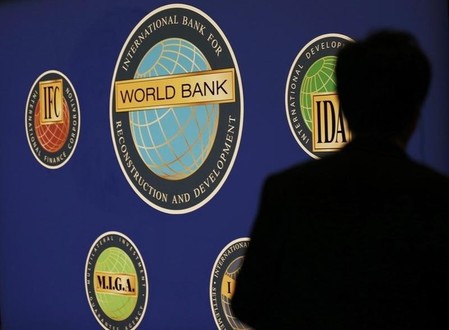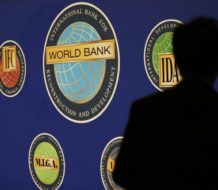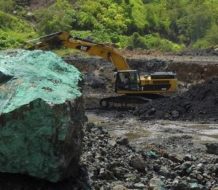KINSHASA (Reuters) – Democratic Republic of Congo will seek between $250 million and $500 million in budgetary support from the World Bank this year, pending a review of its economy by the International Monetary Fund next month, the government said on Tuesday.
Africa’s leading copper producer has been hit hard by a fall in commodity prices since last year. This month the government proposed a 22 percent reduction in the 2016 budget and cut its annual growth forecast to 6.6 percent from 9 percent.
It also announced on Monday that it would scale back the size of a planned international bond issue to finance infrastructure projects to 256 billion francs from 653 billion francs ($686 million).
The support would allow the central bank to boost its foreign currency reserves, which have fallen from $1.48 billion at the end of 2015 to $1.2 billion this week due to a slowdown in exports, said Vincent Ngonga, a deputy chief of staff to the prime minister.
After years of exchange rate stability, a lower supply of dollars has heaped pressure on the franc, causing it to lose more than 2.5 percent of its value against the dollar this year.
“The advantage of budgetary support is that it affects the reserves because, once you have the support, it’s in dollars,” Ngonga said. “The reserves increase but the revenues of the state increase too.”
However, the negotiations with the World Bank can only begin if the IMF certifies Congo’s conformity with governance and macroeconomic standards during a visit next month, he added.
The IMF called off a $530 million loan programme in 2012 after the government failed to provide sufficient details on the cession of mining assets by state miner Gecamines to a company based in the British Virgin Islands.
Ngonga said it was not clear when the government could expect to receive the first tranche of support. The World Bank’s office in Congo was not immediately available for comment.
Ngonga said the government would also seek budgetary support from the African Development Bank (AfDB) but said that too depended on the IMF’s blessing. The AfDB was also not immediately available for comment.
(By Aaron Ross. Editing by Matthew Mpoke Bigg and Gareth Jones)




